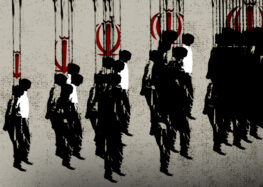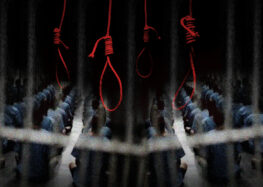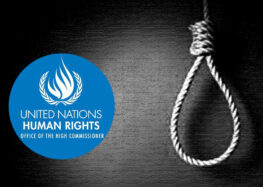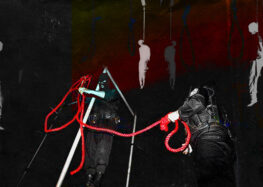Secret and Unannounced Executions in Khuzestan
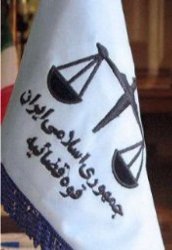 Local sources in Khuzestan Province told the International Campaign for Human Rights in Iran that during the past months, Judiciary authorities did not announce several executions that took place inside the province’s prisons. The Campaign previously reported of dozens of unannounced and secret executions inside Mashad’s Vakilabad Prison and other prisons in the country, all of which have remained unannounced by the Judiciary authorities. Several eyewitnesses visiting Khuzestan prisons have reported seeing families who had come to claim bodies of their executed relatives; however, official sources have not published any statistics pertaining to the executions. In one case the families stated that a group of convicts with drug-trafficking charges were executed together.
Local sources in Khuzestan Province told the International Campaign for Human Rights in Iran that during the past months, Judiciary authorities did not announce several executions that took place inside the province’s prisons. The Campaign previously reported of dozens of unannounced and secret executions inside Mashad’s Vakilabad Prison and other prisons in the country, all of which have remained unannounced by the Judiciary authorities. Several eyewitnesses visiting Khuzestan prisons have reported seeing families who had come to claim bodies of their executed relatives; however, official sources have not published any statistics pertaining to the executions. In one case the families stated that a group of convicts with drug-trafficking charges were executed together.
The International Campaign for Human Rights in Iran has repeatedly asked the Iranian authorities to transparently announce the statistics of executions according to different charges, particularly for drug-related crimes. But the Iranian judicial authorities have so far refused to announce the numbers and have stayed silent in several known cases. Despite the judicial authorities’ silence about the Mashad executions, the March report of UN Secretary General Ban Ki Moon mentioned that during a conversation between the staff of the UN High Commissioner for Human Rights and Iranian judicial authorities, the Iranian authorities confirmed 60 executions at Mashad’s Vakilabad Prison. Even this news was never published in the official media and websites of the Judiciary.
According to judicial authorities, most of those executed in Khuzestan were convicted of drug trafficking and possession charges. Some of the executions carried out inside Ahvaz prisons were announced by the Khuzestan Justice Department, but in some cases the executions took place secretly and families of the executed inmates were only informed about it when they were advised to claim the bodies. The unannounced executions were carried out inside the Karoon and Sepidar prisons in Ahvaz, Dezful Prison, and Behbahan Prison.
It appears from official reports that between March 21, 2010 and March 20, 2011, only 28 prisoners convicted of drug trafficking were executed in Khuzestan Province. But reliable sources inside both Karoon and Sepidar Prisons in Ahvaz believe that the real execution statistics in Khuzestan are a lot higher than the 28 announced by government authorities. On 6 March, during a public event to destroy confiscated drugs, Farzad Farhadi Rad, Deputy Prosecutor of Ahvaz, announced the executions of “more than 40 drug traffickers” inside the province’s prisons (link to Khuzestan Justice Department website- in Persian). The “more than 40 drug traffickers” statistic is higher than the 28 cases that the province’s official sources and the Khuzestan Justice Department announced during the entire 12-month period. Farhadi Rad also failed to mention how many “more than 40” were executed. These ambiguities further increase doubt and speculations about the exact number of executions in Khuzestan.
During another press conference on 3 January, Mr. Farhadi Rad also reported the execution of 16 inmates on drug trafficking charges that had taken place a few days earlier. During the two months preceding the press conference, however, official sources had only mentioned 3 executions inside Khuzestan prisons and published the related information (link to Persian news source).
On 30 April, a Khuzestan Province judicial official, Sirous Mohammadizadeh announced new punishments for industrial and chemical drug traffickers and distributors. He said that in the new law, such criminals will receive the death penalty. Mohammadizadeh reported “issuing 37 death sentences” for drug convicts over the past year (link from the Kuzestan Province Justice Department website- in Persian). Mohammad Bagher Olfat, Head of the Khuzestan Province Justice Department, also reported “a 29% increase” in the province’s number of executions over the past year, and the “59% increase” of execution statistics over the previous two years (link in Persian).
The International Campaign for Human Rights in Iran previously raised concern about the new Judiciary authorities’ orders for increased and widespread executions over the past two years, specifically pertaining to drug traffickers. Human rights sources told the Campaign that upon his appointment to the position of Prosecutor General in 2009, Mohseni Ejehi sent an internal memorandum to all Prosecutor’s Offices in different provinces, ordering them to issue and carry out widespread death sentences for drug trafficking convicts. Mr. Ejehi himself confirmed this memorandum in his news conferences and reported that the Head of the Judiciary delegated the responsibility of dealing with drug-related crimes to him.
The Campaign has previously publicized secret executions inside Mashad’s Vakilabad Prison, Birjand Prison, Taibad Prison, Ghezel Hessar Prison, Orumiyeh Prison, and the Karoon and Sepidar Prisons in Ahvaz.

